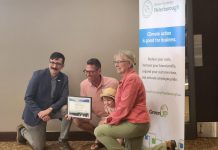
A group of local parents in the Peterborough area have banded together with a goal of providing an alternative living option for their adult daughters living with a development disability.
While the ‘Girl Power’ project is in its earliest stages, the group’s vision is clear: to provide a permanent, safe, and supportive home where women with developmental disabilities can live with dignity and a high quality of life.
Currently, seven parents of adult daughters who are either living at home or in group homes have joined the project, each concerned about their daughter’s future and unimpressed by the limited options available.
“We just want to make sure that when we’re gone, our kids have a facility that’s going to be safe for them to stay in,” explains Jane Bischoff, a Peterborough nutritionist who is the lead behind the project. “I want my daughter to be in a girls-only facility and apparently they don’t exist.”
So Jane, a single mother to 30-year-old Jenny who is diagnosed with moderate autism, is on a mission to create one. The Girl Power project will see the seven women living under one roof with support provided by trained staff members living on site.
“We’re looking to find something permanent for the girls,” Jane says. “But we want all the workers to be female and, if there is a man that enters the house, he has to have authorization. That doesn’t exist in Ontario right now.”
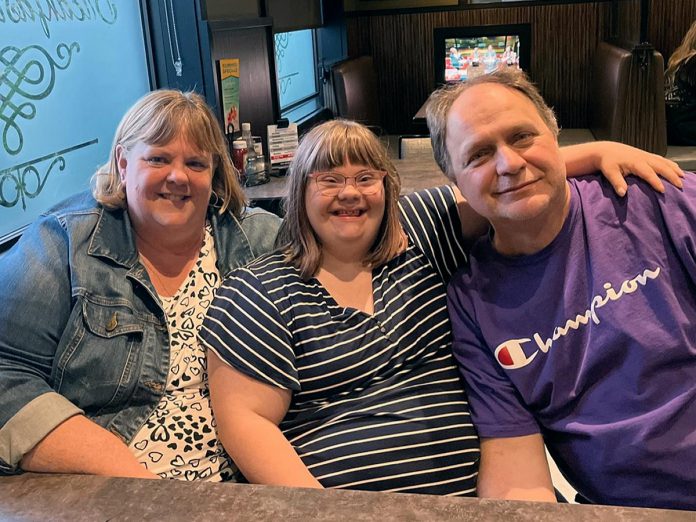
When she began thinking about housing options for her daughter Jenny, who is unable to live on her own, Jane connected with other parents from her daughter’s day program and found that many shared her concern for their own daughters’ safety.
“I’ve had instances where Jenny was groomed for sexual assault,” Jane points out. “I don’t want to put her in a group home where that’s prevalent.”
Jane quotes a recent media release from Inclusion Canada, a national federation supporting the inclusion and rights of people with an intellectual disability and their families, which states that people with intellectual disabilities are five times more likely than those without a disability to experience sexual assault. The release goes on to say that they are most often abused by people paid to support and care for them or people in relationships of trust.
“Most of the group homes I’ve talked to, they say they encourage relationships between the residents,” Jane says. “As a mother of a daughter, that’s a big red flag. She can see guys during the day in her day program, but at night, no, I don’t want any men around.”
Even if Jane had trust in these homes, the wait times can be upwards of 10 years long — a particular concern for aging parents.
“The other option is to keep her at home isolated and just hire people to come in and help, but socially I don’t think that’s good for my daughter,” says Jane. “She’s very social so the more people I have around her, I think it’s going to be more stimulating to her brain.”
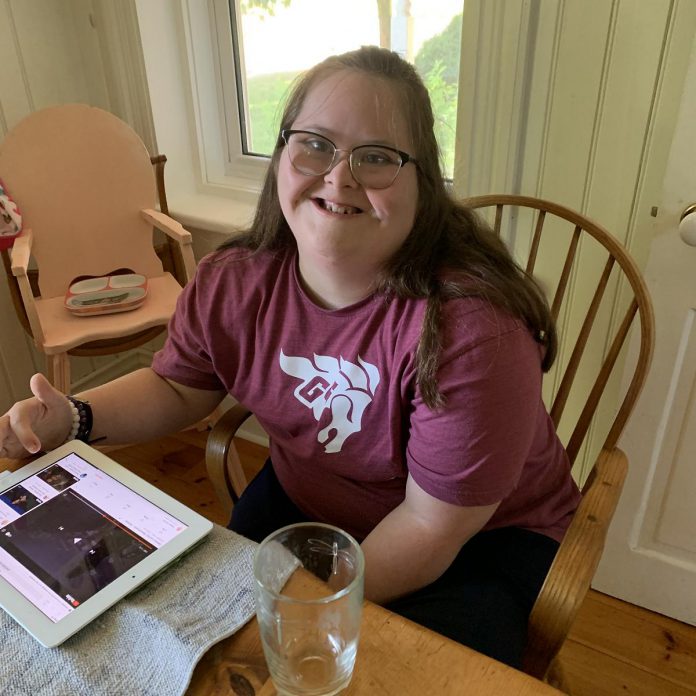
Jane explains the goal of Girl Power is to appeal to “parents that want to protect their daughters from as much harm as they possibly can” by creating that alternate solution. To provide an inclusive space, Girl Power is currently seeking input from interested parents no matter their daughter’s disability or level of care required.
“We’re just looking at everybody and focusing on the dynamic of it,” says Jane. “Parents shouldn’t feel like we’re going to rule them out just because of their child’s diagnosis.”
Similarly, parents shouldn’t feel excluded based on location either, Jane says, noting one of the current members resides in Ajax.
The parent-led organization is currently in the process of investigating real estate options in the Peterborough area, including potential opportunities with Habitat for Humanity or The Mount Community Centre.
The group has discussed if renting would allow them to secure a home much faster, though the parents are fearful that the landlord could have them removed at any moment. The aim, instead, is to find a five or six-bedroom house that would ideally be large enough for support staff to live on site as well.
“It’ll be a good opportunity for people in Peterborough that are in the field to come and work and have likely a base salary plus free room and board,” says Jane. “They would have their own separate washroom, and there would be a community room for everybody to get together if they want.”
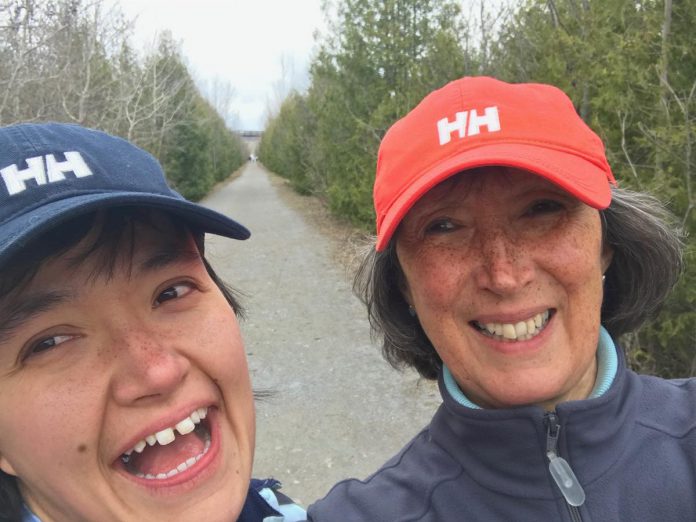
As they search for real estate, the group is taking steps to ensure the process of developing the care home is efficient while still meeting the needs of the residents. Steps include forming a board of directors with financial and legal experts, creating more awareness and support through the development of a website, and exploring technologies for home and personal security.
To raise funds to pay the hired support staff, Girl Power is also in the process of applying for grants and funding through the Ontario Ministry of Children, Community and Social Services, and registering as a charitable organization to accept public donations.
With these steps in place, Jane hopes to have the home ready for the girls to move into within a year’s time.
“Families that have done this in the past have taken 10 years to do it — every two weeks they met for 10 years,” Jane says. “We all decided, no, that’s not happening. We don’t have 10 years.”
A group in Peterborough called Shared Dreams for Independent Living was similarly formed by five families looking to find a home for their adult sons with an intellectual disability. Although the group first formed in 2013 and incorporated as a not-for-profit in 2015, the search for a home and the wait for government funding meant the five men were unable to move into their new home at the Mount Community Centre until 2021.
Girl Power is using the knowledge and experiences from Shared Dreams for Independent Living to speed up their own process, as well as knowledge from another similar group in Peterborough called Casa De Angelae, which provides a communal home for adult daughters living with Down syndrome.
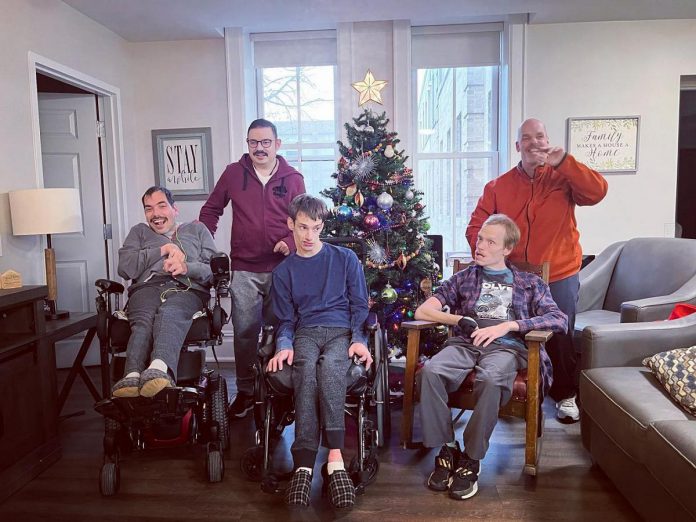
This collaboration and support is exactly what Jane hopes will come out of Girl Power, which she imagines will become a guiding initiative for other cities and communities.
“We don’t necessarily want money — we just want connection.” says Jane. “What’s lacking right now is the communication between parents. That’s where the difficulty lies, because you feel isolated. You feel against the world, like there’s nothing safe for you to find for your daughter. We want to get rid of that hopeless feeling, so that’s what we’re trying to accomplish. Whatever we end up with can be a template for other families.”
Those who interested in supporting or learning more about Girl Power can reach out to Jane at nutritionistjanebischoff@gmail.com.
This story has been updated with a correction: Jane Bischoff is a resident of Peterborough and not Lakefield.















